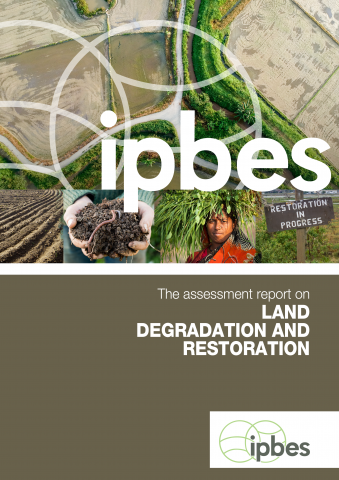Assessment
The Assessment Report on Land Degradation and Restoration

The inclusion of diverse conceptualisation of values, as well as indigenous and local knowledge, makes the assessment more comprehensive than assessments conducted previously, such as the Land Degradation and Assessment in Drylands. The focus on understanding values, how they are conceptualised and formed and how they change across contexts and scales, is critical to inform decision-making and policy design at local, national and global levels. This is because an integrative approach to value enables the consideration of different perspectives about what constitutes a good life and the institutions and social norms that mediate these values.
The Assessment Report on Land Degradation and Restoration was requested as deliverable 3(b)(I) of the first IPBES work programme at the third session of the IPBES Plenary in January 2015 (decision IPBES-3/1). The Assessment Report’s summary for policymakers, its chapters and their executive summaries were approved by the IPBES Plenary at its sixth session in March 2018.
Within an IPBES assessment there are two external review processes. Firstly, an independent external peer review of the first order draft, by experts with relevant knowledge who are not involved in the assessment. Secondly, an independent external peer review by governments, observers and any interested external expert on the second order draft of the full report and the first draft of the summary for policymakers.
The IPBES Assessment Report on Land Degradation and Restoration highlights that land degradation is a pervasive, systemic phenomenon occurring in all parts of the world. The Assessment Report assesses all terrestrial regions (except Antarctica), recognising that land degradation drivers and processes can vary in regions, as well as between them. By establishing the underlying causes of land degradation, the Assessment Report seeks to provide policymakers with the information needed to develop appropriate responses. In line with IPBES’s commitment to broadening its information and expert base beyond ‘western science’, indigenous and local knowledge holders helped compile the Assessment Report. As well as charting the drivers, trends, and effect on human well-being of land degradation, the Assessment Report looks at scenarios of future land degradation, policy options, and tools that can support decision-making.